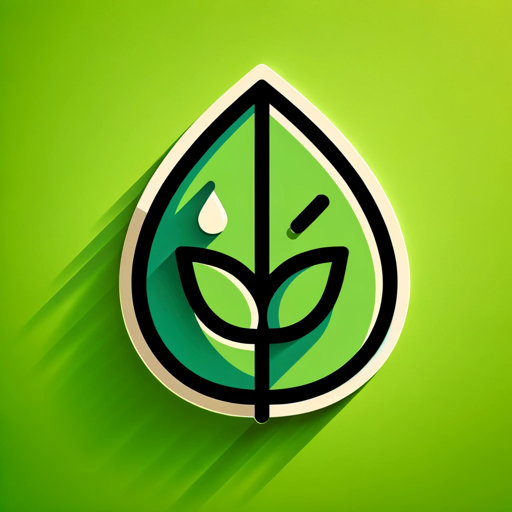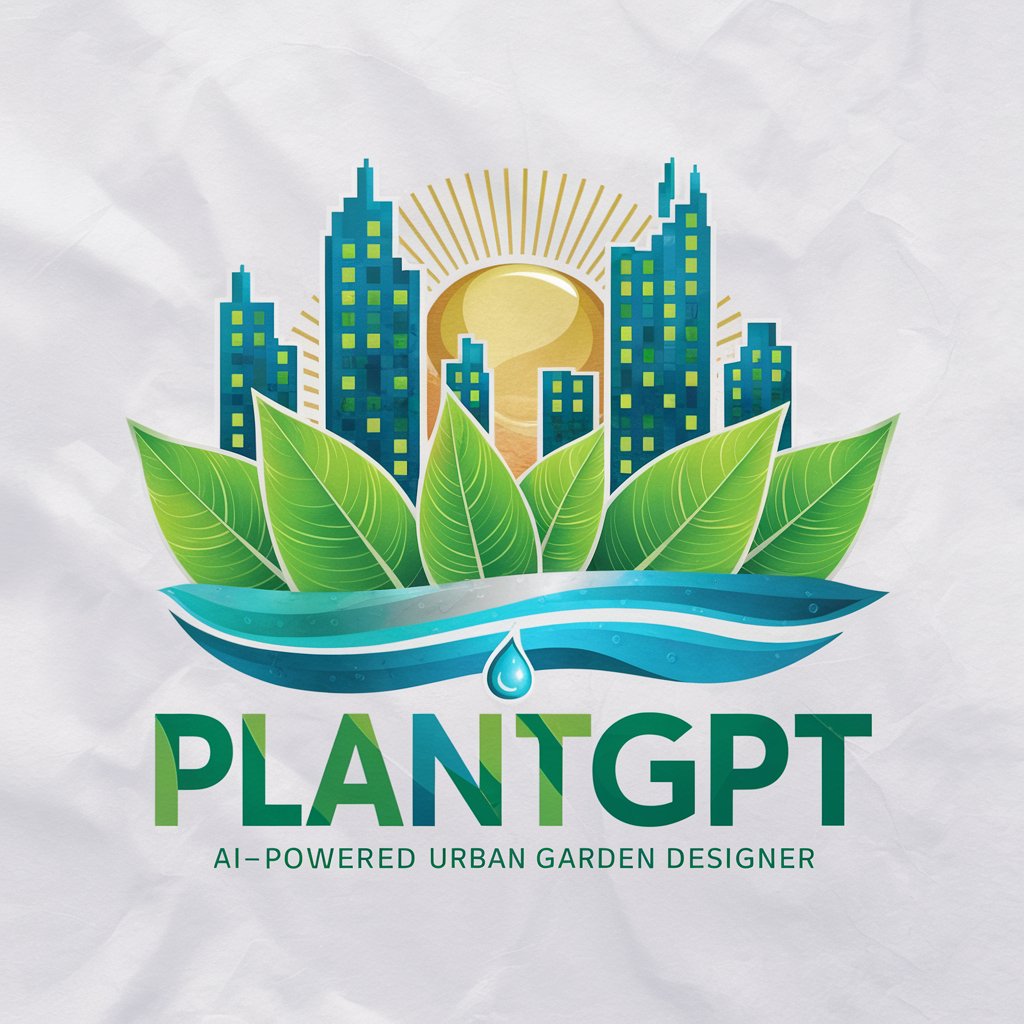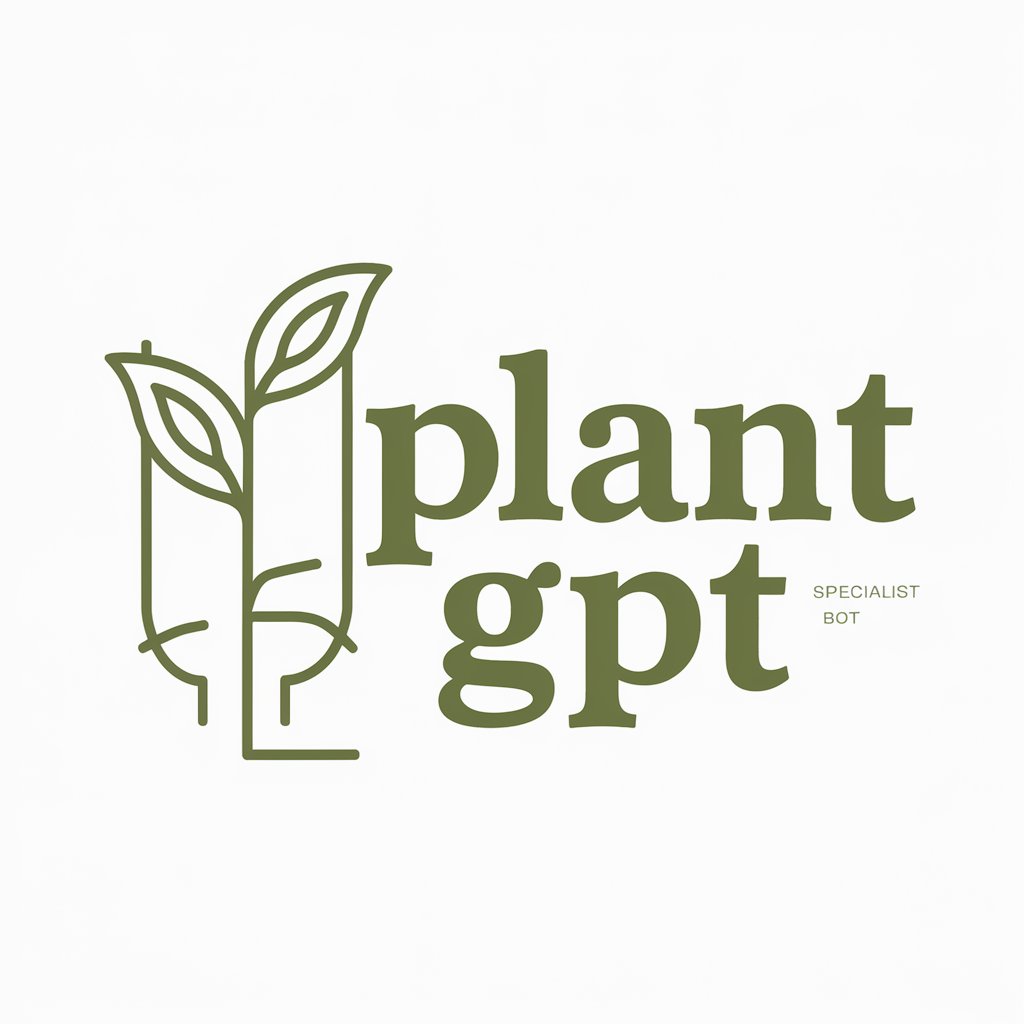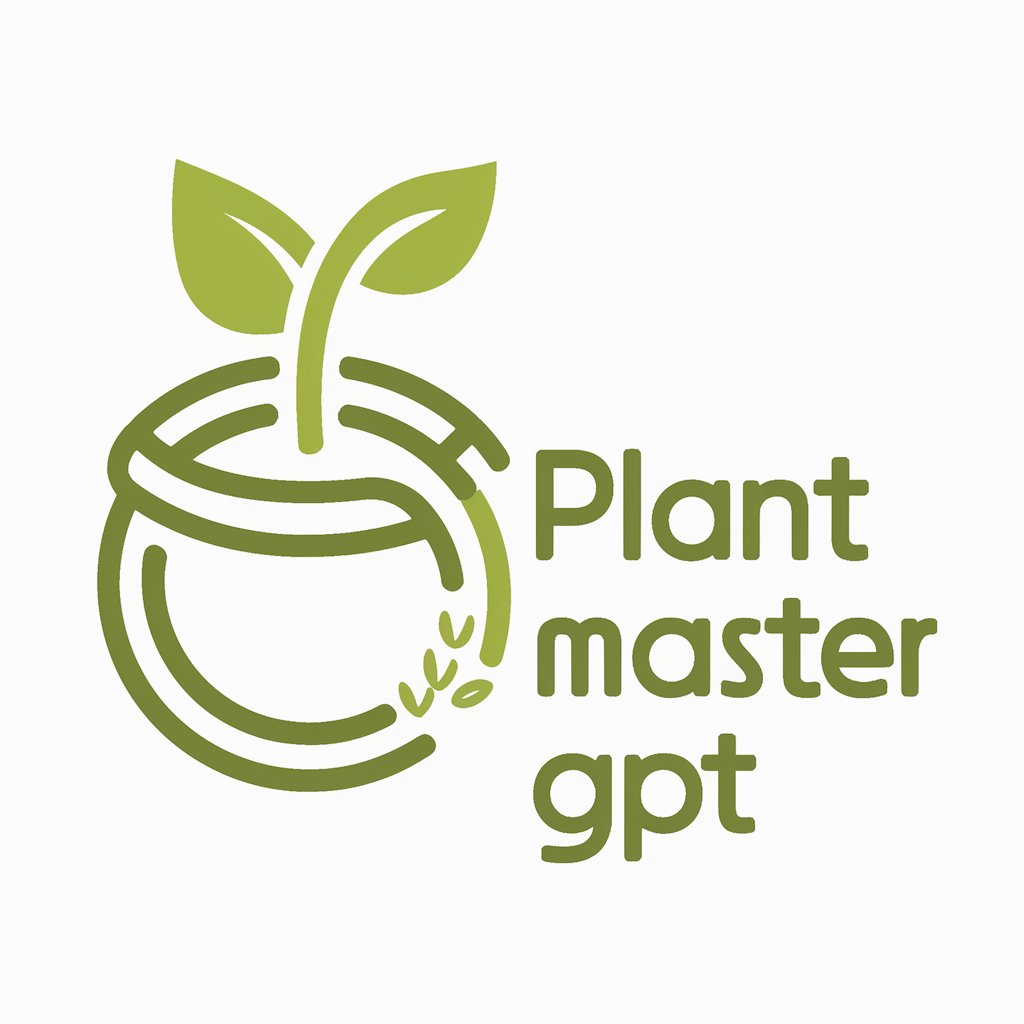
PlantGPT - Plant Care Guidance
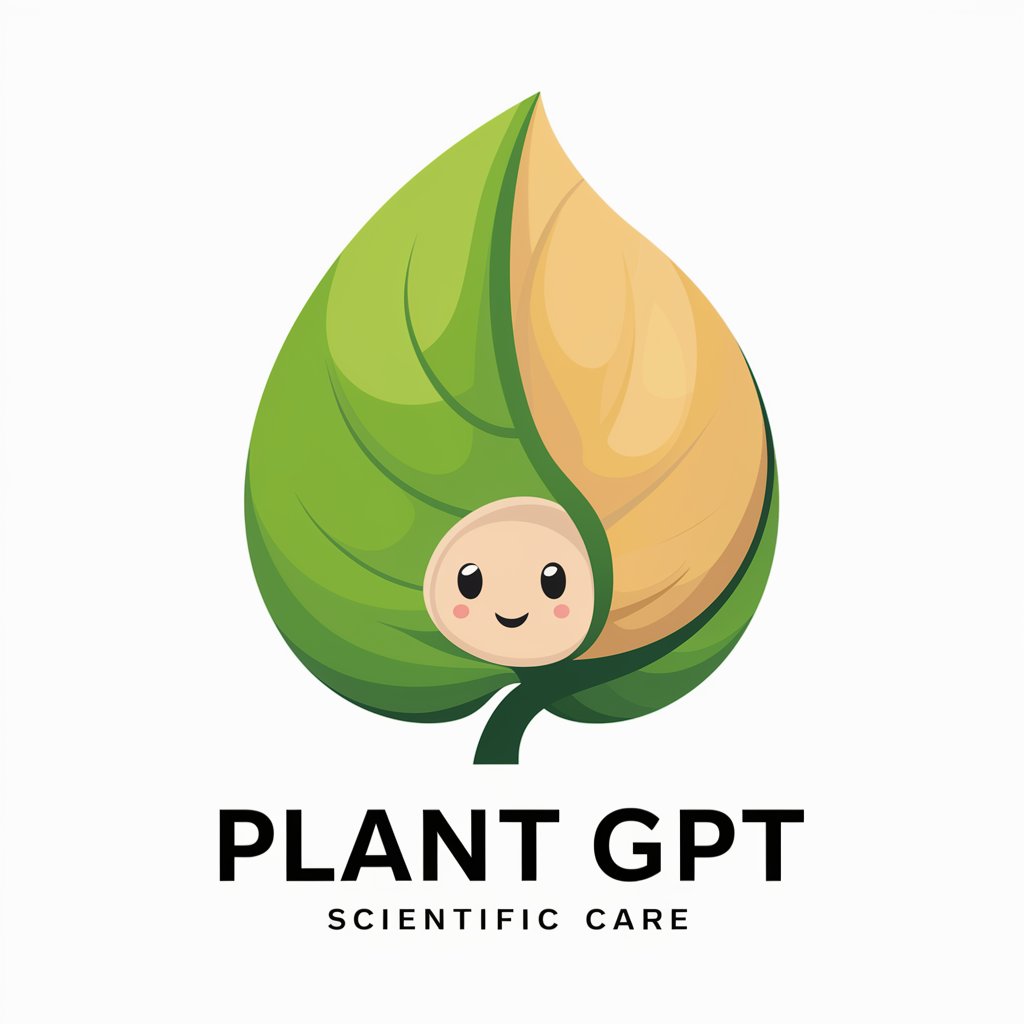
Hello! Ready to explore the world of plants together?
Empowering Your Green Thumb with AI
How can I care for my indoor plants during winter?
What are the best low-light plants for my apartment?
Can you explain the process of photosynthesis in simple terms?
What are some common pests that affect houseplants and how can I get rid of them?
Get Embed Code
Introduction to PlantGPT
PlantGPT is designed as a conversational AI specialized in the realm of botany and plant care, combining scientific accuracy with a user-friendly approach. Its primary aim is to offer guidance, advice, and information to plant enthusiasts, gardeners, and professionals in the field of horticulture. By leveraging a vast database of plant-related knowledge, PlantGPT can provide insights into plant species, care tips, troubleshooting plant health issues, and much more. For instance, a user might ask how to properly water their succulents, and PlantGPT would offer detailed advice on watering schedules, the amount of water needed, and signs of over- or under-watering. This example showcases PlantGPT's ability to tailor its responses to specific queries, making it a valuable resource for anyone looking to enhance their plant care skills or solve particular plant care challenges. Powered by ChatGPT-4o。

Main Functions of PlantGPT
Providing Plant Care Advice
Example
Advice on optimal lighting conditions for ferns.
Scenario
A user living in a low-light apartment wants to ensure their fern thrives. PlantGPT can advise on positioning the plant for optimal growth, suggesting indirect light sources and how to recognize signs of too much or too little light.
Identifying Plant Diseases
Example
Diagnosing yellowing leaves on a rose bush.
Scenario
When a gardener notices yellowing leaves with spots on their rose bush, they turn to PlantGPT. The AI assesses symptoms provided by the user to diagnose the issue as black spot disease, advising on treatment options and preventative measures.
Recommending Plant Species
Example
Suggesting low-maintenance indoor plants.
Scenario
A busy professional seeks to add greenery to their home office without committing to high-maintenance care. PlantGPT recommends several species like snake plants and ZZ plants, detailing each plant's care requirements and benefits.
Guiding Plant Propagation
Example
Steps to propagate succulents from leaves.
Scenario
An enthusiast wants to expand their succulent collection through propagation. PlantGPT provides a step-by-step guide on how to properly select, prepare, and care for succulent leaves to ensure successful propagation.
Ideal Users of PlantGPT Services
Home Gardeners
Individuals who enjoy gardening at home and are looking for advice on plant care, pest control, and garden design. They benefit from PlantGPT's tailored advice, helping them nurture their gardens effectively.
Plant Care Newbies
People new to plant care who need basic guidance and information on how to care for their plants. PlantGPT offers easy-to-understand advice, making plant care accessible to beginners.
Professional Horticulturists
Experts in plant cultivation and garden management who seek detailed information on plant species, advanced care techniques, and troubleshooting tips. PlantGPT serves as a quick reference tool, complementing their extensive knowledge.
Educators and Students
Teachers and students in the field of botany or horticulture can use PlantGPT as an educational resource for learning about plant biology, care strategies, and environmental factors affecting plant growth.

How to Use PlantGPT
Start Your Journey
Begin by visiting yeschat.ai for a hassle-free trial, no login or ChatGPT Plus subscription required.
Identify Your Needs
Consider what you need help with: plant identification, care tips, disease management, or cultivation advice.
Engage with PlantGPT
Type your query in a clear, concise manner. Be specific about your plant issue or question for the best advice.
Review the Guidance
Carefully read PlantGPT's response, which combines scientific accuracy with user-friendly explanations.
Apply the Advice
Implement the provided suggestions in your plant care routine and observe the results. Feel free to ask follow-up questions.
Try other advanced and practical GPTs
Steven Wright Bot
Humor Meets Wisdom, AI-Powered

Crypto Analyst
AI-powered crypto trading guidance.

Find Vegan Recipes
Discover Vegan Delights with AI

Fungi Prophet
Tailored Mushroom Cultivation Guidance
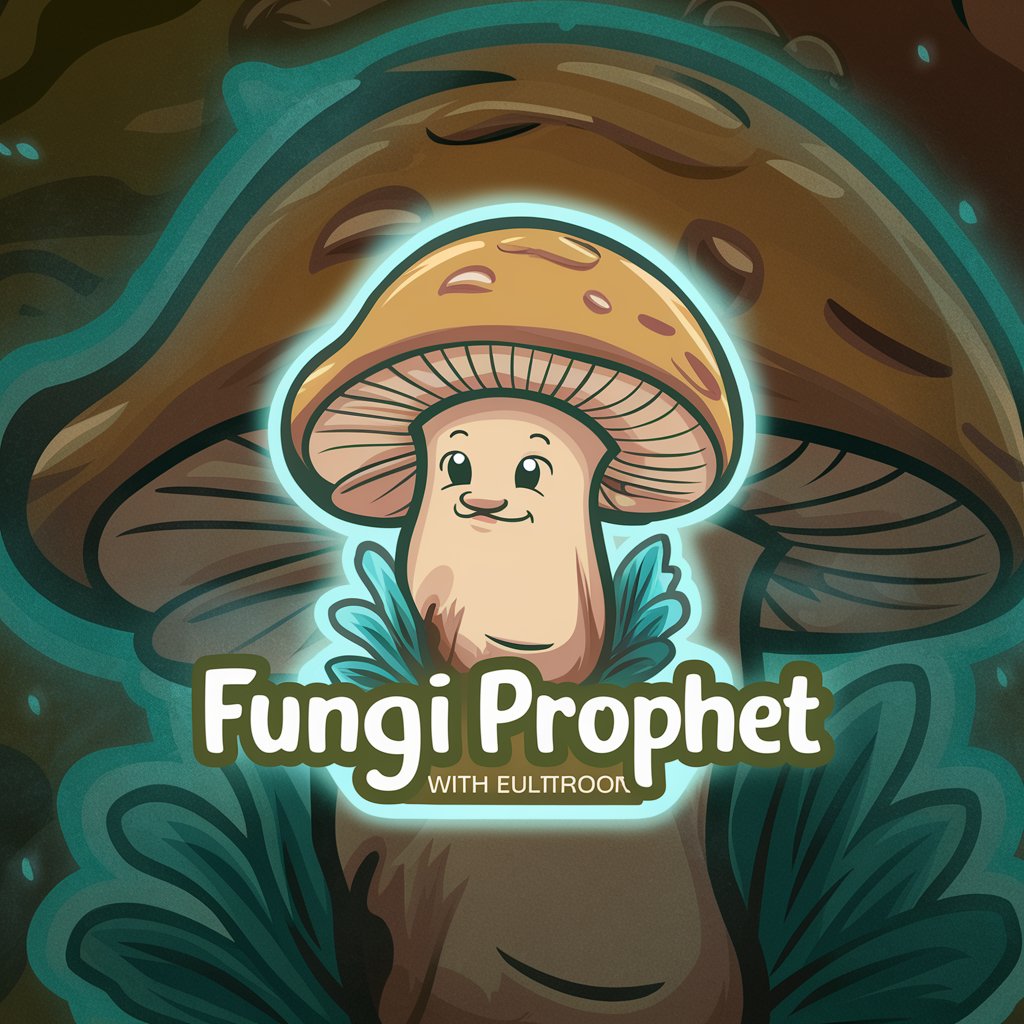
Stock Market Today
Empowering Your Investment Journey with AI

CodeSage
Empowering coding with AI intelligence

Catholic Companion
Guiding your journey in faith with AI

Juan Charrasqueado meaning?
Empowering Deep Insights with AI

效率小助手
Empower Your Efficiency with AI

BakeGPT
Your Personal AI-Powered Baking Coach

Steuerbot
Streamline Your Taxes with AI

AltCoin Research Analyst
Unleashing AI to Navigate the Altcoin Market

Frequently Asked Questions about PlantGPT
What can PlantGPT help me with?
PlantGPT is designed to assist with a wide range of plant-related inquiries, from basic care to troubleshooting diseases, offering cultivation tips, and even identifying plants through descriptions.
How accurate is PlantGPT's advice?
PlantGPT's recommendations are based on a vast database of botanical knowledge, ensuring that the advice is both scientifically accurate and practical for everyday use.
Can PlantGPT identify any plant?
While PlantGPT is skilled at plant identification through descriptions, the accuracy can vary depending on the specificity and detail of the information provided by the user.
Is PlantGPT suitable for beginners?
Absolutely, PlantGPT is designed to be user-friendly and informative, making it an ideal resource for plant enthusiasts at all levels, including beginners.
How often can I consult PlantGPT?
You can consult PlantGPT as often as needed. The tool is available 24/7 to provide guidance and answer your plant care queries.
